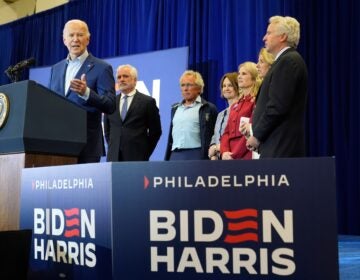Two cheers for the Philly tax break progressives love to hate
Here’s my rough memory of one of the most pithy quotes I ever saw in a news story:
“When our schools are dying for money, why are we giving tax breaks to people who walk around Rittenhouse Square with poodles in their pocketbooks?”
That’s such a witty summation of why so many Philadelphians hate their city’s 10-year-long property-tax abatement. Rarely in history has a successful policy been so scorned by people it benefited.
This tax break, begun in the early 2000s and expanded since, rewards new construction or renovation. It’s a major reason why Philadelphia’s population and tax base actually grew in the last decade.
Yet, again this week, progressive activists cheered as a Council member introduced bills to scrap or limit the abatement. But many of the riffs blasting the abatement are off base. (Alas, it does have one huge flaw, harming the schools, which I’ll get to in a moment.)
First, let’s address the fallacies. The abatement does not just go to posh Center City condos. It’s available citywide.
Second, despite the claims of some skeptics, serious studies show it helped fuel a huge increase in the creation of market-rate housing, all around the city.
Third, the abatement likely has increased, not decreased, city tax revenues. How can that be?
Please indulge me in a little arithmetic. Imagine an upper middle-class couple, living in the ‘burbs, but now empty nesters. They each make $100 grand; he works in the city, she doesn’t. For $800 grand, they buy a tax-abated Center City condo, a unit that would not exist if the abatement had not offset the city’s ridiculously high cost of union construction.
Previously, thanks to the commuter tax, the couple had been paying $3,500 a year to Philly. Now, as new Center City residents, they pay roughly $5,500 more a year. That just about offsets their annual tax break, given how comparatively low city tax bills for such condos have been. Meanwhile, the city reaped $24,000 from the one-time tranfer tax on the sale, plus it will benefit from years of taxes on all the shopping, eating and drinking they will now do in town.
Yep, the tax has generally worked fine for the city’s coffers.
Schools reap the downside
The raw deal has gone to the school district, because the tax that’s being abated, the one on real estate, is where the school system gets a lot of its dough. It gets no wage tax revenue. Basically, mayors and City Councils have reaped the benefits of the abatement, while pawning the downside off on the schools.
Without doubt, this is one cause of the the fiscal train wreck the school system experienced this year.
That fact — combined with the city’s new, more accurate (thus higher) tax valuations for all those new condos and townhouses — might indeed make this a ripe moment to tweak the abatement. As one Council bill suggests, perhaps the abatement could be altered to apply to the city’s share of a property tax bill, but not the schools’.
But let’s arrive at any changes through cool analysis of facts, not overheated populist rhetoric that ignores the arithmetic.
WHYY is your source for fact-based, in-depth journalism and information. As a nonprofit organization, we rely on financial support from readers like you. Please give today.




